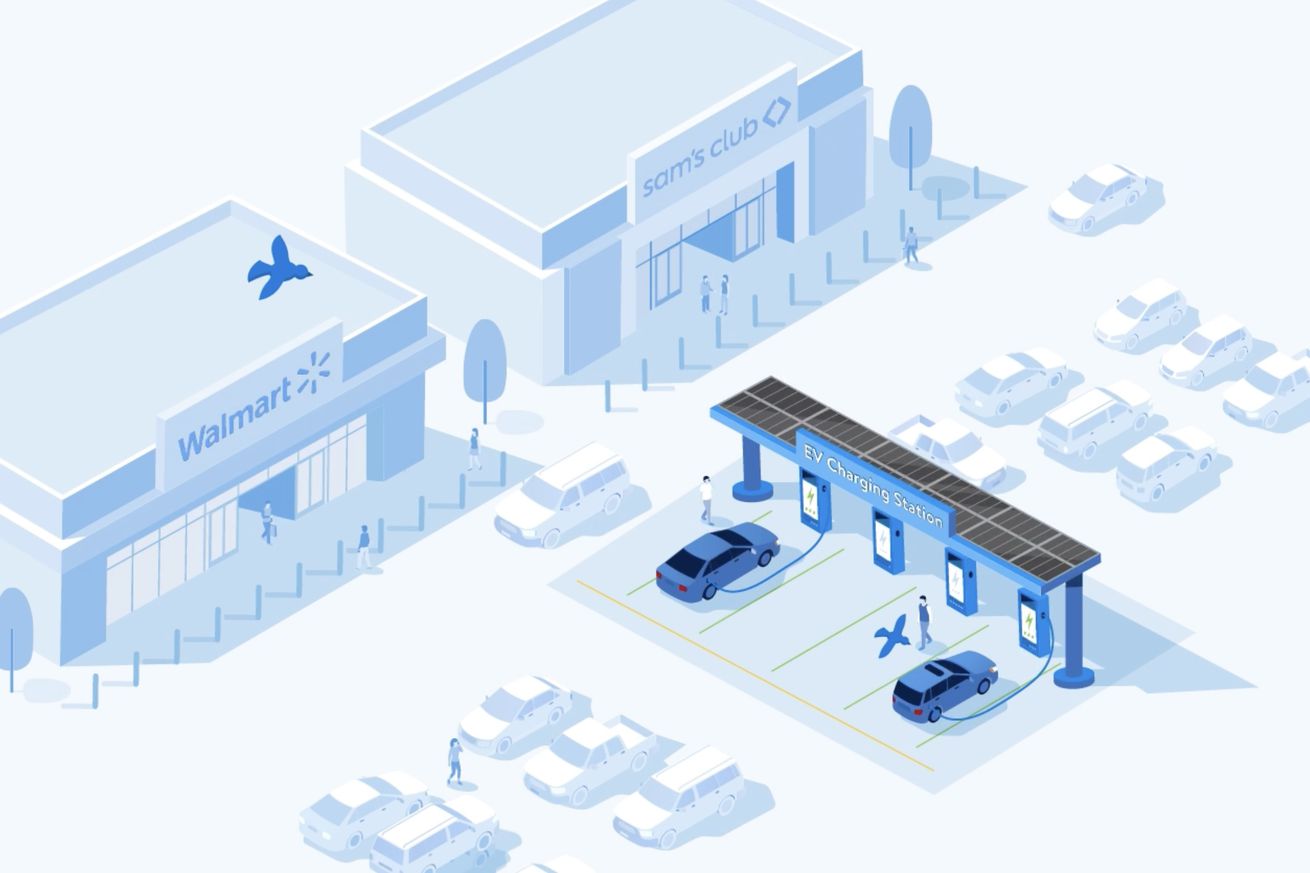
Walmart’s preparing to build its own coast-to-coast EV charging network
Walmart is planning to build out a nationwide electric vehicle charging network at thousands of its stores, including Sam’s Club locations. The company says it plans to have the network built by 2030 and will help make EV ownership “more accessible, reliable, convenient and affordable.”
“Currently, Walmart has nearly 1,300 third-party chargers across 280 stores in partnership with third-party suppliers,” Walmart’s director of global communications – sustainability, Aman Singh, writes in an email with The Verge. This newly announced expansion has the company building a nationwide EV fast charging network on its own instead.
Walmart believes it is “uniquely positioned” to build out a convenient charging solution for EV owners. The company says its stores and wholesale warehouses are located “within 10 miles of approximately 90% of Americans.” Walmart is aiming to offer shoppers “Every Day Low Cost charging” at its many stores, Supercenters, Neighborhood Markets, and Sam’s Clubs. The company says its charging locations will be “clean, bright, and safe” for EV owners.
In addition to expanding electric vehicle charging, Walmart plans to make its own logistics emissions-free by 2040 and has incorporated EVs into its Walmart Plus shopping deliveries. Walmart’s been working with companies like GM’s BrightDrop and Canoo to build last-mile delivery fleets, the latter of which, however, had been embattled with the SEC and just paid a $1.5 million settlement.
Walmart’s EV charging network news comes as more and more businesses are announcing “nationwide” charging solutions in the US, including companies like 7-Eleven, BP, and DC-America. Other companies like Ikea and Starbucks are also looking to become charging hubs but are relying on specialized companies, including Electrify America and ChargePoint (respectively), to take care of the logistics for them.
The reality of charging infrastructure right now includes issues of reliability and heavy fragmentation, where EV owners often must register with multiple charging network companies. To combat these challenges, the Biden administration’s Inflation Reduction Act is providing incentives for groups building out public-use charging stations to make them more accessible, abundant, and reliable.

